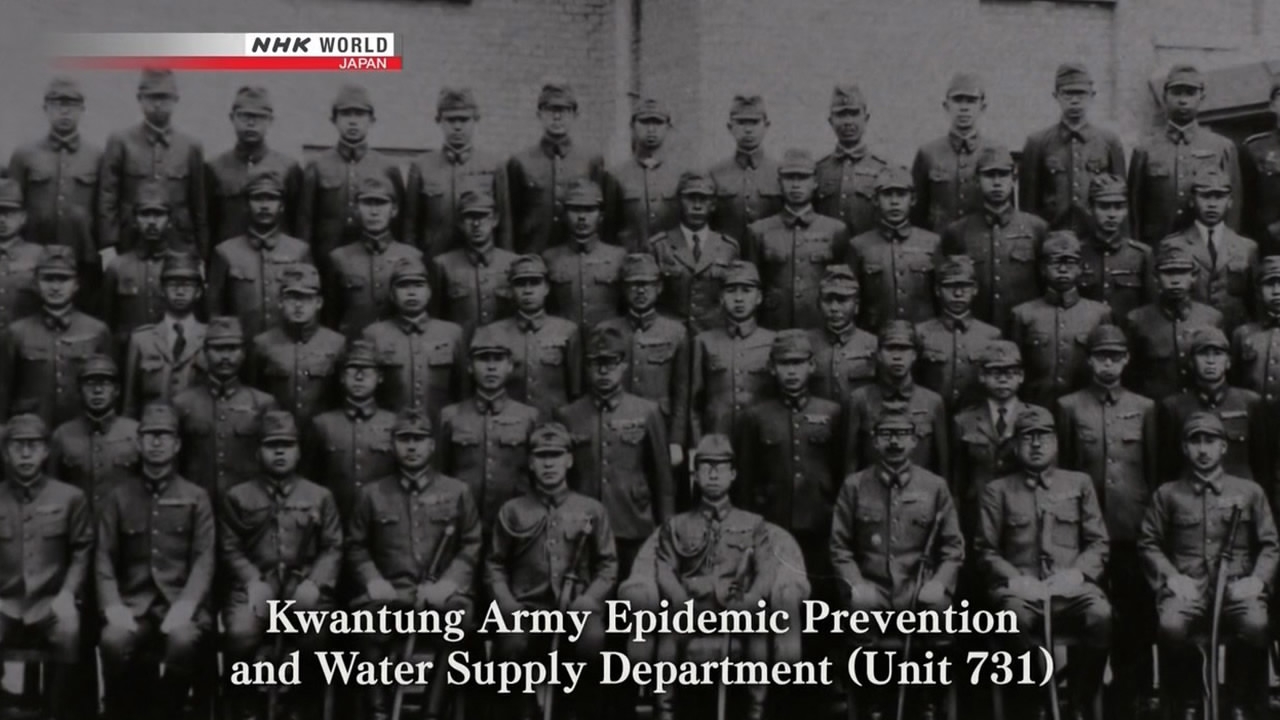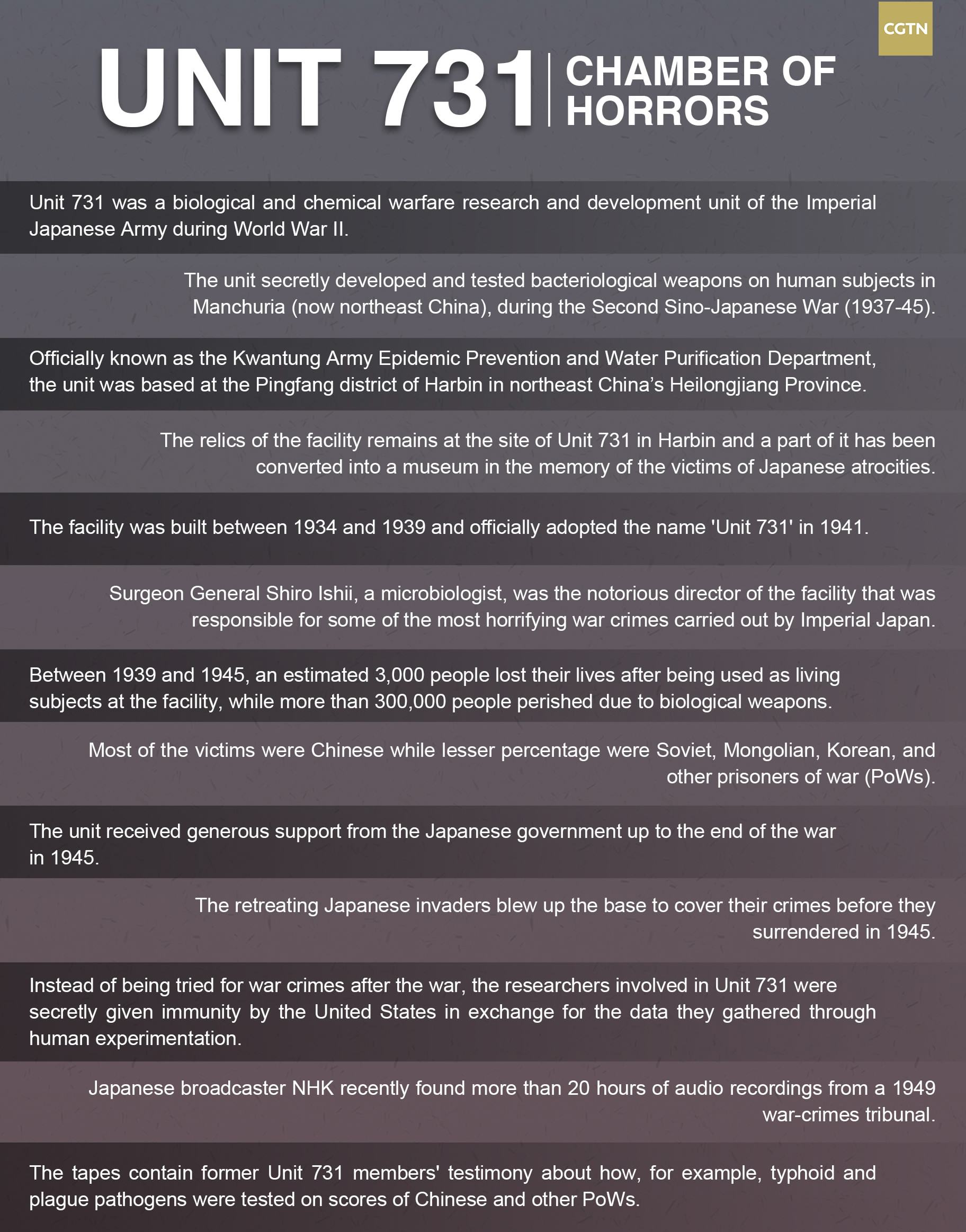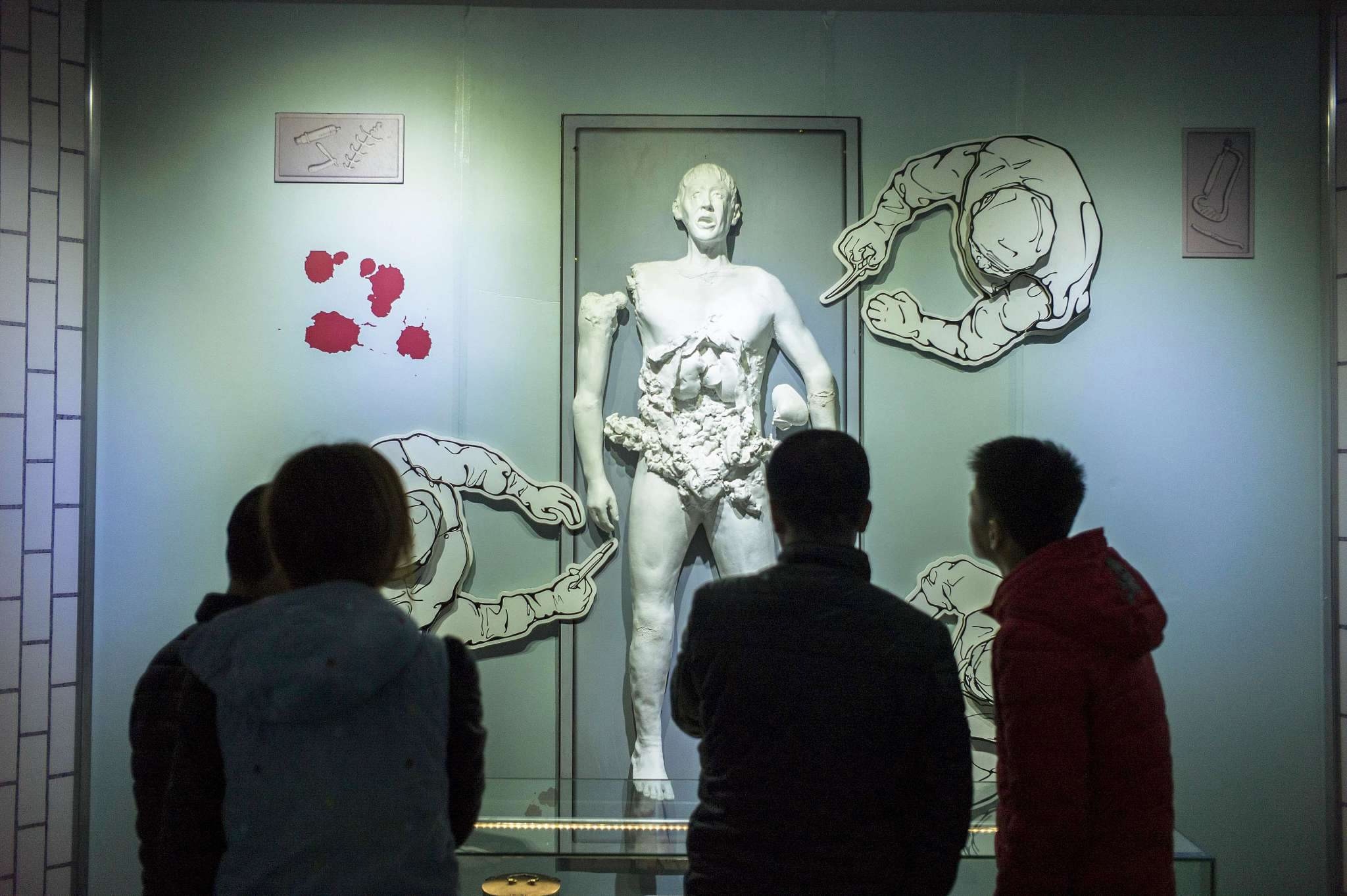
World
14:58, 23-Jan-2018
China lauds Japanese broadcaster for revealing Unit 731 war crimes
By Abhishek G Bhaya

China on Monday commended the courage of the makers of a Japanese documentary for "revealing the historical truth" of the horrifying war crimes committed by the Japanese army during World War Two at the notorious "Unit 731" facility in northeast China, while calling on Tokyo to reflect on "the history of aggression by the Japanese militarism."
Beijing’s response came a day after Japan’s public broadcaster NHK on Sunday aired "Unit 731: Elite Doctors and Human Experimentation", which offered fresh evidence of the brutal testing of bacteriological weapons on live human subjects at the unit that resulted in the death of an estimated 3,000 prisoners of wars (PoWs), mostly Chinese.
"During World War II, the invading Japanese troops waged a heinous germ warfare against the Chinese people," China’s Foreign Ministry Spokesperson Hua Chunying said on Monday when asked to react on the airing of the Japanese documentary.

China's Foreign Ministry Spokesperson Hua Chunying addresses a press conference in Beijing, China, on January 22, 2018. /Photo via China's Ministry of Foreign Affairs
China's Foreign Ministry Spokesperson Hua Chunying addresses a press conference in Beijing, China, on January 22, 2018. /Photo via China's Ministry of Foreign Affairs
"We appreciate the courage of those insightful Japanese people to reveal the historical truth and hope the Japanese side can carefully listen to the call for justice at home and abroad, correctly understand and deeply reflect upon the history of aggression by the Japanese militarism, and earnestly respect the feelings of the Chinese people and people of other victimized Asian countries," she added.
The 110-minute documentary, produced by the NHK, unveils the military crimes carried out by Unit 731, a biological and chemical warfare research and development unit of the Imperial Japanese Army. It is the second film on the topic by the Japanese broadcaster which had released its first documentary on Unit 731 last August.
In an introductory passage about the film, NHK said that while the military had destroyed all evidence of the facility at the end of the war and officials remained tight-lipped, "concealing the truth for decades", the broadcaster recently found more than 20 hours of audio recordings from a 1949 war-crimes tribunal.
"The tapes contain former Unit 731 members' testimony about how, for example, typhoid and plague pathogens were tested on scores of Chinese and Manchurian prisoners," it said.

The documentary offered new evidence and recorded confessions from multiple sources, including from several Russian archives and also included interviews of the relatives of former Unit 731 researchers.
"[Unit 731] used melons to breed typhi bacteria and forced Chinese people to eat them. All the victims were then infected with the lethal disease," Koto Yoshio, a former member of the unit, disclosed in his recorded statement used in the documentary.
The NHK-produced film also offered gory details of how even women and children were used as subjects for criminal experiments on bacteriological weapons. They were repeatedly used for various live trials till the last moments of their lives.
Officially known as the Kwantung Army Epidemic Prevention and Water Purification Department, the unit was secretly built at the Pingfang district of Harbin in the erstwhile Manchuria (now northeast China’s Heilongjiang Province) between 1934 and 1939. The facility officially adopted the name "Unit 731" in 1941.
Surgeon General Shiro Ishii, a microbiologist, was the notorious director of the facility that was responsible for some of the most horrifying war crimes carried out by Imperial Japan.
Unit 731 received generous support from the Japanese government up to the end of the war in 1945, when retreating Japanese invaders blew up the base to cover up their crimes before they surrendered.
The relics of the facility remain at the site of Unit 731 in Harbin and a part of the remains has been converted into a museum in the memory of the victims of Japanese atrocities.
Dubious role of the US

January 7, 2015: Visitors look at a scene of human experiments at the Unit 731 museum in Harbin, northeast China's Heilongjiang province. /VCG Photo
January 7, 2015: Visitors look at a scene of human experiments at the Unit 731 museum in Harbin, northeast China's Heilongjiang province. /VCG Photo
Arrested by the US occupation authorities at the end of World War II, General Ishii and his protégés were to be thoroughly interrogated by the Soviet authorities, according to a 1984 BBC report.
Instead, Ishii and his team managed to negotiate and were secretly given immunity by the US in exchange for their full disclosure of germ warfare data based on human experimentation.
In a 2005 article for The Guardian, Richard Drayton, a Cambridge University history lecturer, claimed that Ishii later went to Maryland in the US to advise on bioweapons. It has been speculated that Ishii went to Fort Detrick, which was the main center of the US biological weapons program from 1943 to 1969. Following the discontinuation of the program, the center continued to function as the hub of the country's biological defense program.
The NHK documentary has been well received in China, where there is a deep anguish over Japanese war crimes. Commentators on Chinese social media have remarked that "the recognition of war crimes is the first step toward solid Sino-Japanese relations."
"Unit 731’s repulsive war crimes should not only be heard by Chinese people, but also by the Japanese public. Acknowledging the wrongdoings in the past, NHK has made a good example to those Japanese leaders who dare not even issue a proper apology to the victims," wrote a netizen on Sina Weibo.
Others were critical of the US role in the matter. "After World War II, because of geopolitical reasons, the US granted immunity to war criminals of Japan and kept many of them in power. The US should be put on trial in the International Court of Justice," commented another netizen who goes by the name Pauil.
1048km

SITEMAP
Copyright © 2018 CGTN. Beijing ICP prepared NO.16065310-3
Copyright © 2018 CGTN. Beijing ICP prepared NO.16065310-3